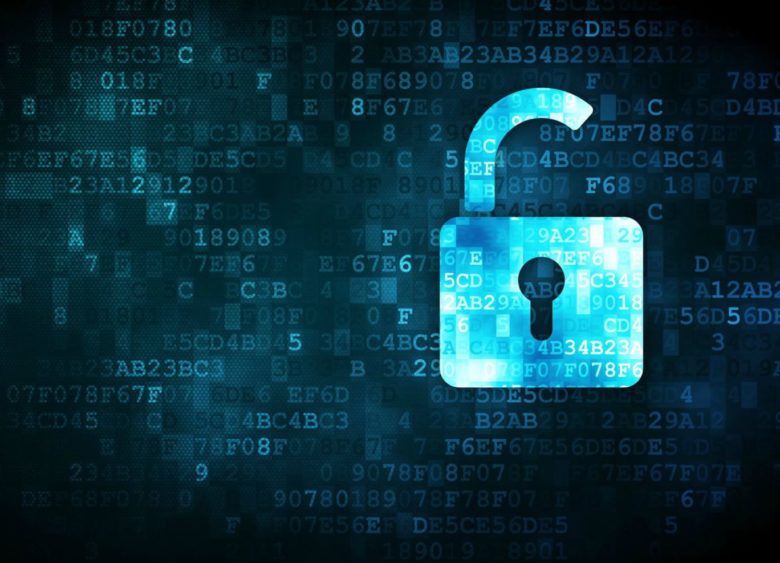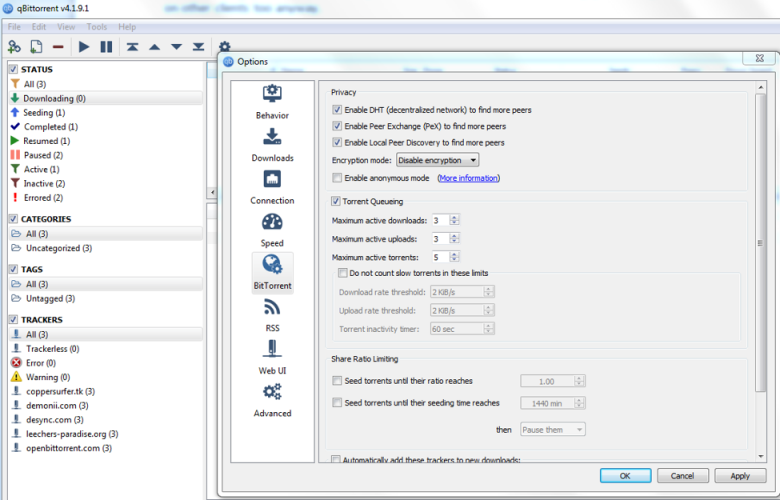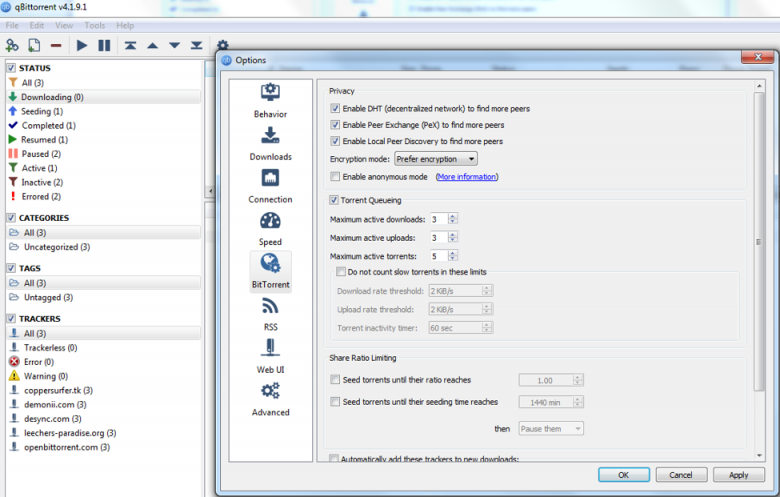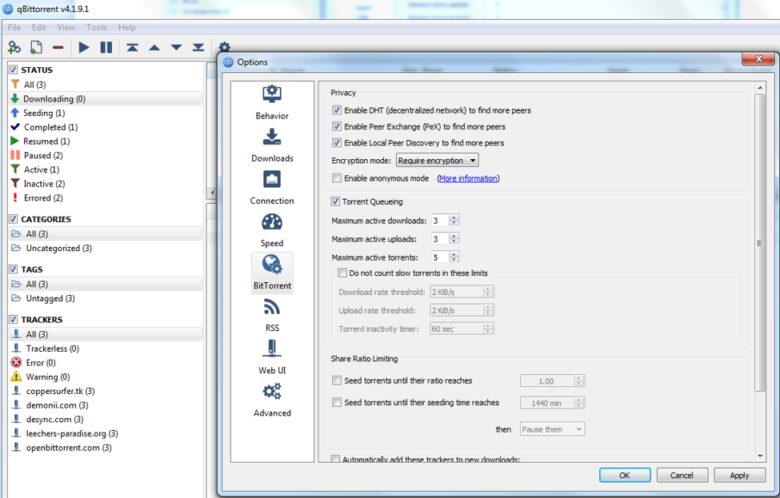Torrenting is more popular than ever nowadays. It’s mostly due to streaming services, but you can’t deny it’s extremely convenient too.
But is it also safe?
Not really – not unless you encrypt your torrents, at least.
Why Do You Need to Encrypt Your Torrents?
After all, if you download them from legit communities, and use an antivirus, you don’t need to worry about anything, right?
Nope – how safe torrenting is completely depends on what country you live in.
For example, if you’re in Switzerland, Spain, or Poland, you don’t have to worry about anything.
But if you’re in the US, things are different. Torrenting copyrighted files is actually illegal there, and you might receive threatening letters from your ISP, copyright agencies, and copyright trolls if you do it.
Plus, things can get worse – organizations could actually sue you for up to $222,000 if they want. What’s more, you can face prison time too, if you’re unlucky enough.

Img source: pymnts.com
And I’m sad to say that’s the situation in many other countries – Japan, Portugal, Australia, Italy, and Latvia are just some examples.
In some places, torrenting might not be fully illegal, but you can quickly get in legal trouble if you accidentally download the “wrong” kinds of torrents. Canada is a pretty good example of that.
Now, it’s true that most of the time you’ll only get threatening letters. You might even be lucky, and nothing bad will happen. But here’s the kicker – your ISP might actually terminate your service if they catch you downloading torrents.
Why?
Because it might be against their ToS. And be honest – how many of you actually fully read through them?
How Does Your ISP Know You’re Downloading Torrents?
Well, there are a few possibilities:
- They are actively monitoring your traffic for signs of torrenting by inspecting your data packets.
- Copyright trolls, copyright agencies, and lawyers are downloading the same torrents as you, and looking up your IP address in the Peers tabs. With it, they can find your ISP, and send them threatening letters, or ask them to share your contact info.
- Your ISP could see you are sending connection requests to torrenting websites. If the requests happen often, they will definitely think you’re downloading torrents.
How to Encrypt Your Torrents – 2 Options
Alright, so it’s obvious you can’t just download torrents without using any kind of protection if you’re in a “risky” country.
So what should you do?
Well, there are two options. I’ll start with the more convenient and simple one:

Img source: techadvisor.co.uk
1. The Easy Way – Use a VPN
A VPN is an online service that protects your torrenting traffic by using encryption (some good VPN examples can be found at Top50vpn.com)
To keep things simple, when you connect to a VPN server, it and the VPN app will establish an encrypted “tunnel.” Any traffic that goes through it will be indecipherable to anyone who tries to sneak a peek.
At most, they’ll just see pure gibberish, and assume you’re using an HTTPS website.
Also, your ISP won’t know you’re connecting to torrenting websites. They’ll just see the IP address of the VPN server, and nothing more.
But wait, there’s more – VPNs also hide your IP address. So, copyright trolls, lawyers, and annoying torrent monitoring agencies won’t manage to find your real IP address in the torrent client.
Best of all – using a VPN is very simple. Just install and run the app, connect to a server, and you’re good to go!
Of course, you can’t just use any VPN. You need a good, reliable one that won’t reveal your torrenting activities through traffic leaks. Also, a Kill Switch is a must, since it will shut down your online traffic if you ever lose your connection to the server.
To find the right VPN for torrenting and learn tons of useful digital security tips, check out all the helpful guides at ProPrivacy.
2. The Hard Way – Use Built-in Encryption
Not many people know this, but most torrent clients actually let you set up encrypted connections to other peers.
Since I’m using qBittorrent, I’ll show you how to do it with this client, however, the setup process is pretty similar on other clients too.
First, you need to open and client, and head to Tools > Options > BitTorrent.

Once there, look for the “Encryption mode” field. If you want to prioritize encrypted peers, choose “Prefer encryption.”

And if you want to force encrypted connections, pick “Require encryption.”

Still, here’s why using this kind of encryption might not work as well as a VPN encryption:
- Even if you use the encryption, there are services that might be able to detect torrenting traffic anyway. Sandvine is a good example – a company that makes firewalls for ISPs that can (allegedly) spot and block BitTorrent traffic.
- The BitTorrent protocol uses significantly weaker encryption than VPNs. Right now, the protocol uses 60-80 bit keys, while most VPNs rely on 128 and 256-bit keys.
- Using built-in torrent encryption can really lower your download/upload speeds since it limits the amount of peers you can connect to. You’ll only be able to connect to clients that also use encryption, after all. You can configure the client to accept connections to unencrypted peers, but that pretty much defeats the purpose of encryption in the first place.
- Not all torrent clients encrypt the contents of your data packets – just the headers. So, your ISP could still manage to identify torrent traffic.
Conclusion
Torrenting might be normalized all over the world by this point, but it’s still not widely accepted. In many countries, you can end up facing scary letters, ISP service termination, huge fines, and even jail time if you’re not careful.
Luckily, you can stay safe if you encrypt your traffic. Personally, I recommend using a VPN, but you can also try built-in encryption in the torrent client.
If you know other useful ways to secure your torrents, let us know in the comments.




